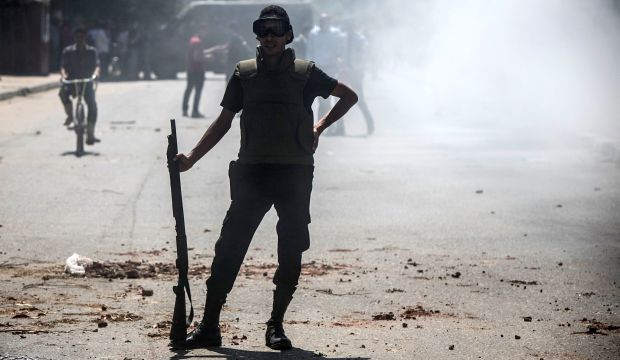In just one week, we have seen terrorist attacks in Saudi Arabia, Egypt, Tunisia, Syria and Iraq.
In Saudi Arabia, a group of militants attacked citizens in Al-Ahsa, killing and injuring a group of people who had gathered at a Shi’ite Husseiniya (meeting house). The gunmen, along with those who assisted this terrorist operation, were quickly pursued by Saudi security forces. One police officer and two soldiersᰬdefenders of the nation—were killed in the subsequent counterterror response.
In Tunisia, we saw a new form of terrorism with gunmen targeting a bus transporting soldiers, resulting in the death of five.
In Egypt, there has been a series of explosions and attacks this week, not least an attack on a train that killed at least four people.
This is a summary of the events of just one week in our region. However, the most striking thing is that while terrorism is nothing new, the terrorist acts that we have seen this week have all been unprecedented in one form or another.
In Saudi Arabia, we witnessed an excellent response to the Ahsa crime from the state and the people. Saudi security forces, utilizing two decades of counterterror experience, did their duty competently while the media also played a crucial role. Saudi Arabia’s judiciary has also played an important role and we have noticed the stringent sentences that have been issued recently against terrorism-related crimes after years of deliberation.
To be frank, the weakest link in Saudi Arabia’s counterterrorism program lies in our dawa (religious proselytism) culture and what our sheikhs are being allowed to say. The authority that is charged with overseeing what is happening in our mosques is the Ministry of Islamic Affairs.
In comments to Asharq Al-Awsat this week, Ministry of Islamic Affairs Undersecretary Dr. Tawfiq Al-Sudairi said that the ministry had called on all mosque preachers to explicitly condemn the Ahsa terrorist attack in order to strengthen and confirm Saudi national cohesion. “Whoever fails to abide by this, has no place among us,” he added.
This is all well and good, but the reality on the ground tells a different story. The response to the Ministry of Islamic Affairs’ decree did not meet the required level and this is hardly surprising when we consider that there are 94,304 mosques in Saudi Arabia.
How can any party monitor all of these mosques? How can any organization oversee every single word that is said by a mosque preacher to his congregation?
More than this, who is monitoring the television channels that allow sympathizers of Al-Qaeda, or Al-Nusra Front, or the Islamic State of Iraq and Syria (ISIS) to appear and spread their repulsive message?
There are some Arab states that have put a lot of restrictions, both procedural or constitutional, in place in order to ensure that mosques—and what preachers say there—fall firmly under the gaze of the state. This includes Morocco, the United Arab Emirates, and most recently Egypt. However ultimately each country must follow its own course according to the country’s own specific circumstances.
Let me give you one clear example of the gap between what the ministry wants and the reality on the ground in Saudi Arabia. The Ministry of Islamic Affairs issued a famous decision banning external speakers on mosques, with the exception of the adhan (call of prayer), of course. A fatwa supporting this decision was even issued by the late Sheikh Mohamed Bin Uthaymeen, who was one of the most prominent clerics in the country at the time.
Despite all this, this decision has never been applied on the ground in Saudi Arabia while many mosque preachers even deny ever receiving this order. Every year, the ministry’s leadership confirms that yes, this decision is in place, but to no avail.
So, I am sorry to say that presently the Ministry of Islamic Affairs is the weakest link in Saudi Arabia’s counter-terrorism efforts.

Trackbacks/Pingbacks